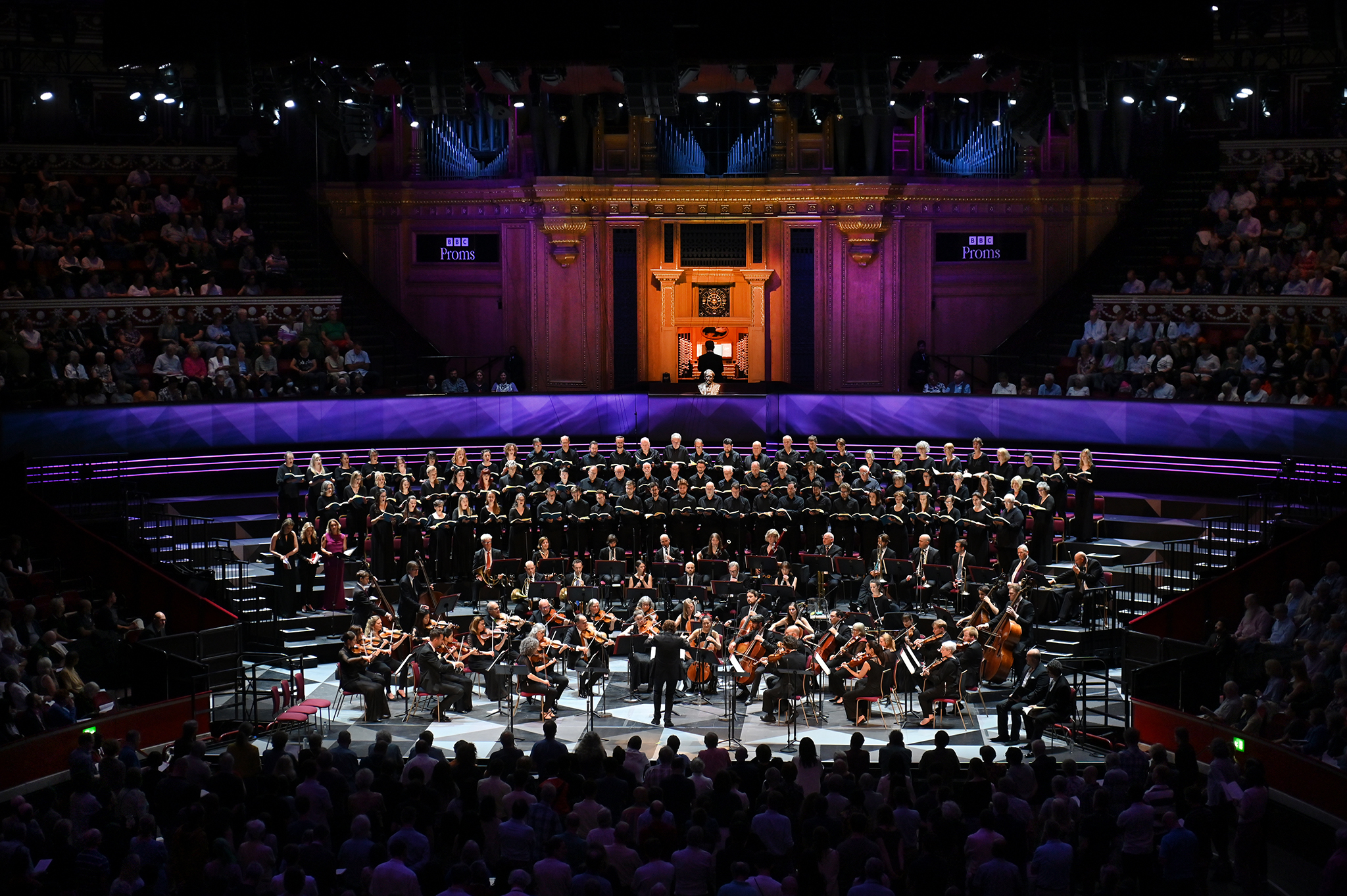In my music collection there is a handsomely bound vocal score of Elijah, presented to my grandfather as a chorister’s prize in 1912. It’s a relic of a time when Mendelssohn’s oratorio stood second only to Handel’s Messiah in public esteem, to the extent that it was sometimes given a definite article: “the” Elijah, as Messiah is still sometimes “the” Messiah. Those days are long gone, as a slightly less-than-capacity audience at Saturday’s Prom performance attested, but Maxim Emelyanychev’s performance suggested that there might be life in the old prophet yet.
At the first performance in 1846, Mendelssohn directed 396 performers in Birmingham Town Hall, including a chorus of 271. On Saturday there were about a third of that, with a chorus of 80. So there was some loss of weight and volume, but a distinct gain in clarity and vigour, with a particularly impressive contribution from the Scottish Chamber Orchestra Chorus, whose clear tone and faultless diction brought the dramatic moments vividly to life. Another benefit was the use of period instruments by brass and strings, with crooked horns, natural trumpets and even an ophicleide. On modern instruments Mendelssohn’s scoring can sound thick and heavy; here it was bright and sinewy, with the harsh tones of the horns adding extra aggression to Elijah’s aria “Is not his word like a fire” in part I.
Mendelssohn calls for no less than eight soloists, of which the BBC could apparently run to five. I was ready to grumble about the allocation of some of the quartet work to the chorus, but the front row sang “For he shall give his angels” and “Cast thy burden” so beautifully that my complaint died on my notepad, and I take my hat off to the single soprano who led off the chorus of seraphim in part II. It seemed a shame, though, that a real boy couldn’t have been found to announce the coming of rain. Of the soloists, Helen Charlston stood out as an authoritative Angel, adding edge and aggression to her tone for a formidable Queen in part II. Carolyn Sampson was a more ethereal angel (there are quite a lot of angels in this piece) and a warm and deeply-felt widow. Rowan Pierce completed the female line-up, blending flawlessly in the duet and trio, and ascending to the organ-loft to hail the miraculous raincloud. Andrew Staples filled the vast space of the Hall effortlessly with his burnished tenor as Obadiah and Ahab.
Which leaves us with the title role. Long revered by singers, Roderick Williams probably attained national treasure status with his appearance at the coronation. His Elijah was, as ever, sensitively phrased, faultlessly enunciated and alive to the character’s many changes of mood. But his voice is really more Wigmore Hall than Royal Albert, and this Elijah failed to dominate as even in a revisionist performance he surely should. At times I couldn’t help thinking of a firm but fair headmaster rather than Mendelssohn’s volatile prophet. There is something not quite right when Elijah is outsung by Ahab.
Conducting without a baton or indeed a podium, the unfailingly energetic Maxim Emelyanychev drew precise and dynamic playing from the band, bringing out orchestral details which often get lost in a Victorian wash of sound. If he could not entirely conceal Mendelssohn’s occasional lapses in inspiration, his approach made a strong case that Elijah’s former place near the head of the choral league table was not entirely undeserved.
William Hale
Photo: BBC/ Chris Christodoulou

